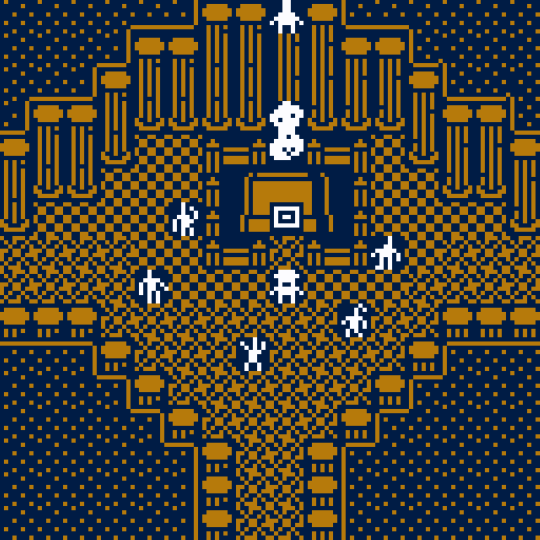I played Museum Of Everything yesterday but hadn't commented because I think I hit a bug and so I thought maybe I should poke around in the code before doing so but I haven't had time. (I'm quite intrigued to see how you built this. I found the randomness frustrating yet also not because I could see that the game is built to guide the player to various points and not leave you floating around, lost forever.)
Anyway, the bug(?): I unlocked the room for the refugees and then in trying to find my way "down" I ended up here at the top of this screen and I couldn't move in any direction so I had to give up.


